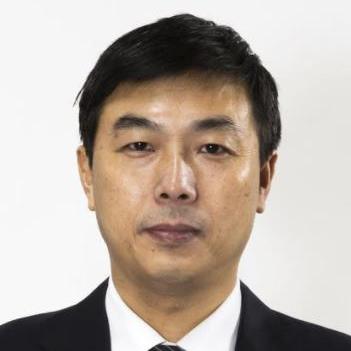China made remarkable progress in foreign diplomacy last year. The strategic partnership with Russia was deepened, friendship with developing countries was furthered, progress was made in promoting a new type of big-power relationship with the United States, and mutually beneficial cooperation with neighboring countries was strengthened. Positive moves were also taken on international hot-spot issues. In the East and South China Seas, Beijing persisted in its principles on state sovereignty and territorial integrity.
This year, China’s diplomatic efforts will focus on building a framework for its big-power relationships, improving its peripheral diplomacy, advancing cooperation with developing countries, putting into practice various economic initiatives, and making a success of its “host diplomacy”.
While celebrating its achievements, Beijing should guard against the possibility of things going wrong, especially major powers’ negative reaction to China’s handling of its peripheral affairs. For instance, Japan and the United States have expressed opposition to China’s move to set up an air defense identification zone over the East China Sea despite the move’s being consistent with international practice. Washington eventually accepted the fait accompli by asking American airlines to observe China’s regulations on flights over the zone, but its annoyance was explicit in its repeated statement of “nonrecognition of China’s air defense identification zone.” It even sent a B-52 bomber into the zone in a defiant move.
Another example of things turning bad was Kyrgyzstan’s announcement that it would not participate in the China-Kyrgyzstan-Uzbekistan railway project which had long been planned. On the surface, it was because the Kyrgyzstan government had concluded that the railway would bring little benefit to the country. But one cannot exclude the possibility that the US and Russia were behind the change. The two major powers have been tussling for strategic influence in the central Asian country, the only one nation in the world that allows both the US and Russia to set up military bases on its soil. Russian scholar Alexei Vlasov holds the view that through the railway project China will be able to exert financial pressure on central Asian countries and may squeeze the US out of the region and harm Russia’s plan for the CIS integration. Obviously Kyrgyzstan’s withdrawal from the joint project was more a result of big power games rather than a simple question of whether it is beneficial or not.
Given these considerations, in 2014 China should attach particular importance to the relationship between action and counteraction in its diplomacy, and be prepared for any unexpected turns.
“Host diplomacy”, diplomatic activities conducted within China, will be the highlight of this year. This year China will host two major events, the Conference on Interaction and Confidence-Building Measures in Asia (CICA) and the Asia-Pacific Economic Cooperation (APEC) summit.
CICA is a multilateral forum on regional security, involving 24 member states and 12 observer countries and international organizations. The forum aims to enhance cooperation towards promoting peace, security and stability in Asia. China will assume the chairmanship this year until 2016. As a permanent member of the UN Security Council and Asia’s largest economy, China is responsible for promoting mutual trust and cooperation among Asian countries, as well as peace and security in the region. The CICA forum provides a good stage for China to play its role as a “responsible big country”.
The APEC Leaders’ Informal Meeting is the grouping’s highest-level meeting, during which the member economies’ leaders exchange ideas on economic issues. Shanghai hosted the 9th APEC summit in 2001. The 22nd summit will be held in Beijing this autumn. After 13 years, the annual summit comes to China once again, giving China an opportunity to promote a more active role of APEC counterbalancing the pressure and challenge from the Trans-Pacific Partnership Agreement (TPP).
The two “host diplomacy” events are significant for China in its bid to secure a stable, friendly neighboring environment. The Chinese government should adopt the following attitude and measures to make full use of the advantages of “host diplomacy”.
First, they should demonstrate China’s sincerity in implementing the correct concept on righteousness and interests, which has promoted by the new central leadership. Specifically, China should treat African countries with “honesty, friendliness and sincerity” while handling relations with its neighboring countries with “friendliness, sincerity, benefit and inclusiveness.”
Second, there should be a push for economic integrity in the Asia-Pacific region. To meet the competition posed by the TPP, China should urge the APEC summit to further liberalize trade and investment in the region for closer coordination among member economies.
Third, China should consolidate relationship with certain countries. The new central leadership has adopted a more proactive diplomatic strategy and diversified its key diplomatic targets. Beijing needs to further consolidate bilateral relations with countries most important to China.
Fourth, isolating Japan is a possible option. Faced with Japan’s recent provocations, China can use the ‘host diplomacy” stage to brief participating countries of the facts and origins of the East and South China Seas controversies and historical problems as well as its positions on the issues. With that done, Japan’s provocative actions will only serve to isolate itself from the Asia-Pacific community.
Fifth, China needs to explain itself to the rest of the world. “Host diplomacy” provides the best opportunity for China to demonstrate its achievements in economic growth and its defense build-up. Needless to say, China should remain modest and let other countries know that it is powerful but not aggressive.
Jin Canrong is Professor and Associate Dean at School of International Studies, Renmin University of China, People’s Republic of China.
Sun Xihui, PhD at School of International Studies, Renmin University of China, People’s Republic of China.
